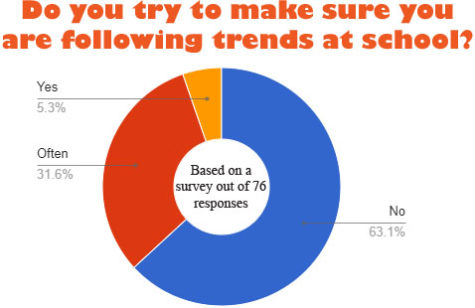Vaping targets impressionable teens
November 9, 2018
Vaping: the act of inhaling a cocktail of vaporized chemicals, including nicotine and sometimes marijuana, through a vape pen. This practice that was once meant to wean smokers off cigarettes has now been contorted into a fad among teens. Even though people must be at least 18 to purchase a vape pen and materials, underage individuals still get their hands, or mouths rather, on them.
Students can have various reasons for vaping. Some may have conceded to peer pressure, or they just think they look cool by doing it. Students may also use it as an escape from emotional pain or stress. Others have become tethered to a nicotine addiction- which is ironic since the companies falsely advertise their product as alleviateing nicotine dependence.
Unfortunately, many students are unaware of the other serious consequences of vaping due to false advertisement. What is portrayed as harmless water vapor is really a mixture dangerous chemicals and addictive substances.
While those who vape nicotine laced cartridges can become addicted to them, others should also take note and avoid the possibility of falling into the downward spiral of addiction. According to the National Academies, underage persons who develop a nicotine addiction stunt the growth of the prefrontal cortex of the brain, which affects cognitive behavior and decision making.
Vapers are also losing lung function to a condition called Bronchiolitis Obliterans, or popcorn lung. I would think that the inability to breathe efficiently would deter anyone from vaping; however, I understand that some students face challenges that may guide them to vape as an escape. There are alternative coping mechanisms that do not tempt addiction nor cause long lasting damage that students can turn to instead.
Basically, students have been misled by companies who want to make a quick buck with no regard to young consumers’ health. It’s time for teenagers to see the bigger picture and understand that vaping is a ploy for companies to take advantage of the youth.
Even though the human brain is not fully developed until the mid-twenties, and the legal age of adulthood comes at eighteen, students who take the time to get the facts should have enough knowledge about the consequences of vaping to make the smart decision not to vape.







